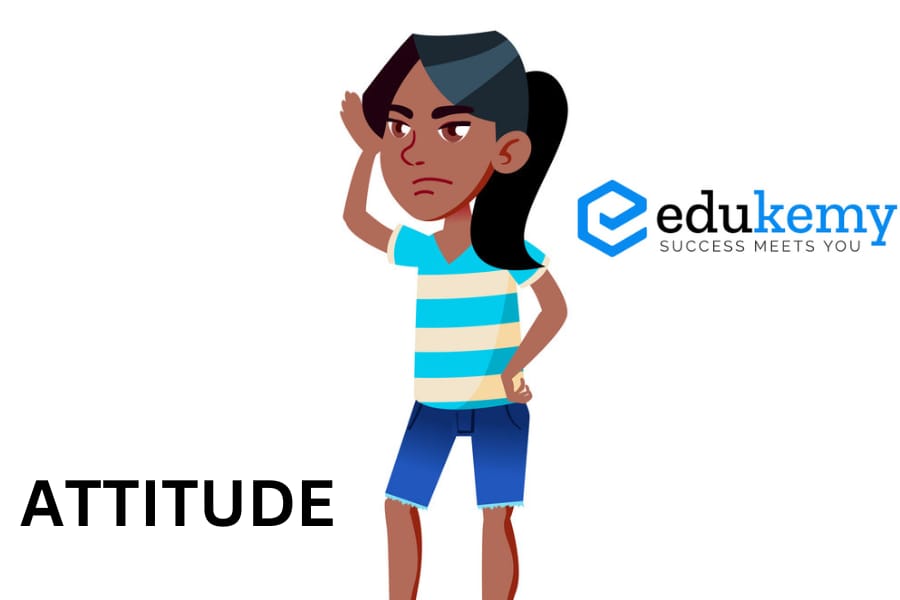Attitude refers to a complex mental state involving beliefs, feelings, values, and dispositions to act in certain ways. It’s essentially the lens through which we perceive the world and make judgments about people, objects, events, or ideas. Attitudes can be positive, negative, or neutral, and they play a crucial role in shaping our behaviors and interactions with others.
One of the fascinating aspects of attitudes is their dynamic nature. They can be influenced by various factors such as personal experiences, social norms, culture, and media. Moreover, attitudes are not always stable; they can change over time due to new information, persuasion, or personal growth.
Understanding attitudes is essential in fields like psychology, sociology, marketing, and communication, as they impact how individuals respond to stimuli and make decisions. Researchers often explore attitudes through various methods such as surveys, experiments, and observational studies to unravel their complexity and effects on human behavior.
In summary, attitudes serve as the foundation of our perceptions and behaviors, shaping our responses to the world around us and influencing our interactions with others.
Attitudes are composed of three components:
Cognitive component:
This refers to an individual’s beliefs and thoughts about the object or person. For
example, if someone has a positive attitude towards exercise, they may believe that exercise is good for
their health and well-being.
Affective component:
This refers to an individual’s emotional response to the object or person. For
example, if someone has a negative attitude towards a political candidate, they may feel anger or disgust
when they see or hear about that candidate.
Behavioral component:
This refers to an individual’s tendency to behave in a certain way towards the
object or person. For example, if someone has a positive attitude towards recycling, they may be more
likely to recycle their waste and encourage others to do the same.
FAQs
Q: What factors influence attitudes?
Attitudes can be influenced by a variety of factors, including personal experiences, socialization, cultural background, education, media exposure, and peer influence. Additionally, psychological processes such as cognitive dissonance, social comparison, and persuasion can also play a significant role in shaping attitudes.
Q: Can attitudes change over time?
Yes, attitudes can change over time. New information, experiences, or social influences can lead individuals to reevaluate their beliefs and values, potentially resulting in a shift in attitude. Additionally, deliberate efforts such as persuasion campaigns or educational interventions can also contribute to attitude change.
Q: How do attitudes affect behavior?
Attitudes can influence behavior in various ways. In some cases, attitudes directly predict behavior, meaning that individuals are more likely to act in accordance with their attitudes. However, the relationship between attitudes and behavior is not always straightforward, as other factors such as situational constraints, social norms, and individual differences can also play a role in determining behavior.
Q: Can attitudes be measured?
Yes, attitudes can be measured using a variety of methods. One common approach is self-report measures such as surveys or questionnaires, where individuals are asked to indicate their agreement or disagreement with statements related to a particular attitude. Other methods include observational studies, behavioral measures, and physiological indicators such as heart rate or skin conductance.
Q: Are all attitudes equally important?
Not necessarily. Some attitudes may be more strongly held or more central to an individual’s identity, making them more influential in shaping behavior. Additionally, attitudes toward certain topics or issues may be more salient or relevant in specific contexts, leading to greater impact on behavior. However, the importance of an attitude can vary depending on individual differences, situational factors, and cultural norms.
In case you still have your doubts, contact us on 9811333901.
For UPSC Prelims Resources, Click here
For Daily Updates and Study Material:
Join our Telegram Channel – Edukemy for IAS
- 1. Learn through Videos – here
- 2. Be Exam Ready by Practicing Daily MCQs – here
- 3. Daily Newsletter – Get all your Current Affairs Covered – here
- 4. Mains Answer Writing Practice – here

